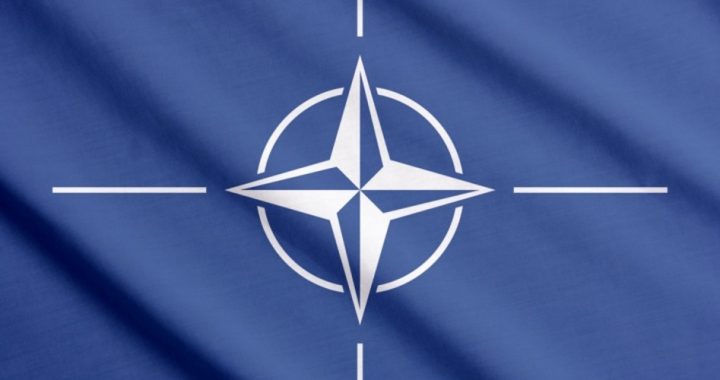
Podcast: Play in new window | Download ()
Subscribe: Android | RSS | More
A Pew Research Center survey about the North Atlantic Treaty Organization (NATO) released recently showed that the alliance’s favorability rating has fallen in both the United States and France. The Pew organization itself characterized NATO members’ views optimistically, stating, “NATO is generally seen in a positive light across publics within the alliance.” However, a Reuters report about the survey noted, “NATO’s public image in the United States and France worsened sharply last year.”
Reuters reported that positive views of NATO fell to 52 percent in the United States last year, down from 64 percent in 2018. In France, support fell to 49 percent last year, from 60 percent in 2017 and 71 percent in 2009.
Last year, French President Emmanuel Macron questioned the value of NATO, saying the alliance was experiencing “brain death” because many believed it had failed to help resolve world conflicts, observed Reuters.
Another commentary on the Pew survey from Jordanian website Al Bawaba blamed NATO’s waning popularity on President Trump’s criticism of the alliance. The report noted, “Public confidence in the North Atlantic Treaty Organization has fallen sharply in the US, France, and Germany since U.S. President Donald Trump came to office.”
“The United States is spending far more on NATO than any other Country. This is not fair, nor is it acceptable,” Trump tweeted in July of 2018. “While these countries have been increasing their contributions since I took office, they must do much more. Germany is at 1%, the U.S. is at 4%, and NATO benefits Europe far more than it does the U.S.”
Al Bawaba referred to a recent interview with James George Jatras (deputy director of the American Institute in Ukraine, an NGO) on Tehran-based Press TV.
“Trump was right in 2016 that NATO serves no purpose, it is obsolete,” said Jatras.
“There is no military threat to the countries of Europe, so why do we have this alliance and why is the United States in it?” he continued.
“This alliance should have been disbanded decades ago but it sort of survives as kind of a zombie alliance that goes forward under its own inertia.”
To answer Jatras’ question about why we have the NATO alliance and why the United States is in it, we must consider the real reason for establishing NATO — as opposed to its ostensible purpose. John F. McManus, president emeritus of The John Birch Society, discussed the real motive behind establishing NATO in a 2002 article. NATO was founded in 1949 for the stated purpose of defending Western Europe against an attack by the Soviet Union, but the collapse of the Soviet-led Warsaw Pact in 1989-1991 removed the main adversary of NATO, and this should have rendered the alliance obsolete.
However, a major reason for NATO’s founding, and its continuation, is something few people realize. NATO is a “Regional Arrangement” of the UN authorized by Articles 52-54 of the UN Charter.
In 1949, U.S. Secretary of State Dean Acheson stated that NATO was “designed to fit precisely into the framework of the United Nations,” and that it “is an essential measure for strengthening the United Nations.”
McManus noted that the real purpose of NATO is to provide the UN with something it presently lacks — an armed force.
Trump’s main objections to NATO have been economic and, as such, they do not begin to address the real problem with the UN’s army-in-waiting. The United States should not only withdraw from NATO but also from NATO’s parent organization, the UN.
Image: Popartic via iStock / Getty Images Plus
Warren Mass has served The New American since its launch in 1985 in several capacities, including marketing, editing, and writing. Since retiring from the staff several years ago, he has been a regular contributor to the magazine. Warren writes from Texas and can be reached at [email protected].
Related articles:
NATO Supporters Fear That Trump Threatens the Alliance



